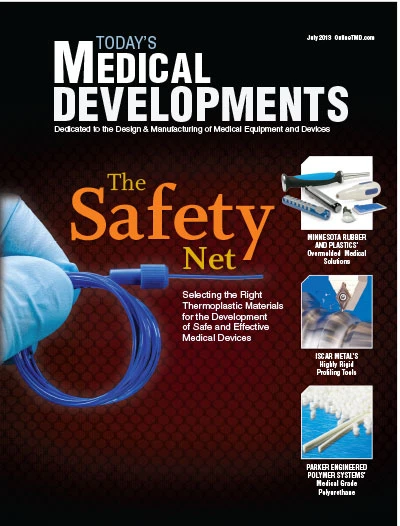 Tom Grasson Tom GrassonAssociate Publisher Editorial Director |
When it comes to having surgery, I make no bones about it. I want the best doctor and surgical team that money can buy. If my fate is going to be in the hands of the surgeons and nurses in the operating room, I need to feel confident that they possess the expertise to successfully correct the existing condition. It’s true that even the most routine and simplest of operations can result in negative consequences, which explains the apprehension everyone feels prior to going under the knife, as some would say. This is precisely the reason I need to know who will be performing the operation. I want to know that the surgeon is thoroughly trained and can address any complication that may arise. In other words, I’m not about to tempt my fate with some new procedure, such as robotic surgery involving the da Vinci multi-armed robot, without assurances. It has been a little more than 13 years since the Food and Drug Administration (FDA) approved the da Vinci Surgical System for prostate surgery. According to Intuitive Surgical Inc., the company responsible for designing and building da Vinci Surgical Systems, 367,000 robotic surgeries took place last year versus 114,000 in 2008. Today, it is estimated that 1,400 U.S. hospitals (close to 1 out of 4) have a da Vinci Surgical System. And they are not inexpensive. Each system has an estimated market value of $1.45 million. On the surface, one would think that robotic surgery is now a proven technology. Surgeons sit at a computer screen rather than standing over the patient for a couple of hours. In addition, robotic hands don’t shake. Furthermore, the da Vinci Surgical System requires every surgical maneuver be performed with direct input from the surgeon. So, why is the FDA now looking into an influx of reported problems during robotic surgery? Some suggest the system is faulty. Still others believe that surgeons have not received proper training in the use of robotics. Regardless of who is right, since early last year, at least five deaths have been reported, as well as a host of bizarre incidents, all linked to the da Vinci robot. In one such incident, the robotic hand would not let go of tissue grasped during surgery. Another reported incident involved a robotic arm hitting a patient in the face while on the operating table. Most disturbing is the fact that the director of marketing for Intuitive Surgical Inc., testified before a jury during a lawsuit that internal marketing documents identified surgeons who were viewed as having limited skills in performing minimal invasive procedures. Those doctors were then allegedly targeted by the company’s marketing department for the system. I’m confident the FDA will get to the root cause of the many problems stemming from the da Vinci Surgical System and determine corrective action procedures. However, in the mean time, I would not gamble my fate on surgery involving robotics, especially the use of robotics employed by surgeons possessing limited skills. As always, your comments are welcomed.
|

Explore the July 2013 Issue
Check out more from this issue and find your next story to read.
Latest from Today's Medical Developments
- Arcline to sell Medical Manufacturing Technologies to Perimeter Solutions
- Decline in German machine tool orders bottoming out
- Analysis, trends, and forecasts for the future of additive manufacturing
- BlueForge Alliance Webinar Series Part III: Integrate Nationally, Catalyze Locally
- Robot orders accelerate in Q3
- Pro Shrink TubeChiller makes shrink-fit tool holding safer, easier
- Revolutionizing biocompatibility: The role of amnion in next-generation medical devices
- #56 Lunch + Learn Podcast with Techman Robot + AMET Inc.






